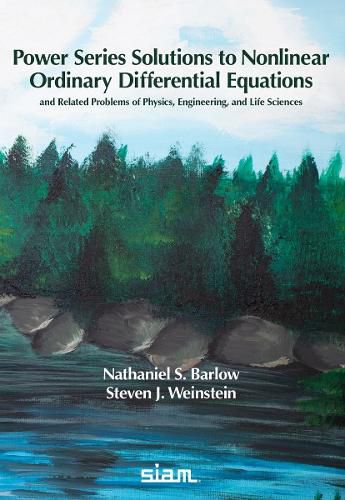Readings Newsletter
Become a Readings Member to make your shopping experience even easier.
Sign in or sign up for free!
You’re not far away from qualifying for FREE standard shipping within Australia
You’ve qualified for FREE standard shipping within Australia
The cart is loading…






This book is the first to offer a systematic methodology for solving nonlinear ordinary differential equations (ODEs) using power series, specifically those arising in mathematical physics. It provides tools to eliminate the tedious manipulation of infinite series, enabling recursive computation of all terms. The authors also present a structured approach to overcoming convergence issues inherent to such methods, demonstrating that power series solutions can be both accessible and practical.
The authors' teaching philosophy - that mathematics is best learned by doing - is reflected throughout, with the text largely composed of idea-driven examples and physically motivated problems from their own research. Proofs are included only when necessary for readers to construct custom theorems or definitions relevant to real-world applications.
Ultimately, the book shows that power series methods can effectively complement numerical techniques, offering applied mathematicians a powerful and versatile toolset.
$9.00 standard shipping within Australia
FREE standard shipping within Australia for orders over $100.00
Express & International shipping calculated at checkout
Stock availability can be subject to change without notice. We recommend calling the shop or contacting our online team to check availability of low stock items. Please see our Shopping Online page for more details.
This book is the first to offer a systematic methodology for solving nonlinear ordinary differential equations (ODEs) using power series, specifically those arising in mathematical physics. It provides tools to eliminate the tedious manipulation of infinite series, enabling recursive computation of all terms. The authors also present a structured approach to overcoming convergence issues inherent to such methods, demonstrating that power series solutions can be both accessible and practical.
The authors' teaching philosophy - that mathematics is best learned by doing - is reflected throughout, with the text largely composed of idea-driven examples and physically motivated problems from their own research. Proofs are included only when necessary for readers to construct custom theorems or definitions relevant to real-world applications.
Ultimately, the book shows that power series methods can effectively complement numerical techniques, offering applied mathematicians a powerful and versatile toolset.